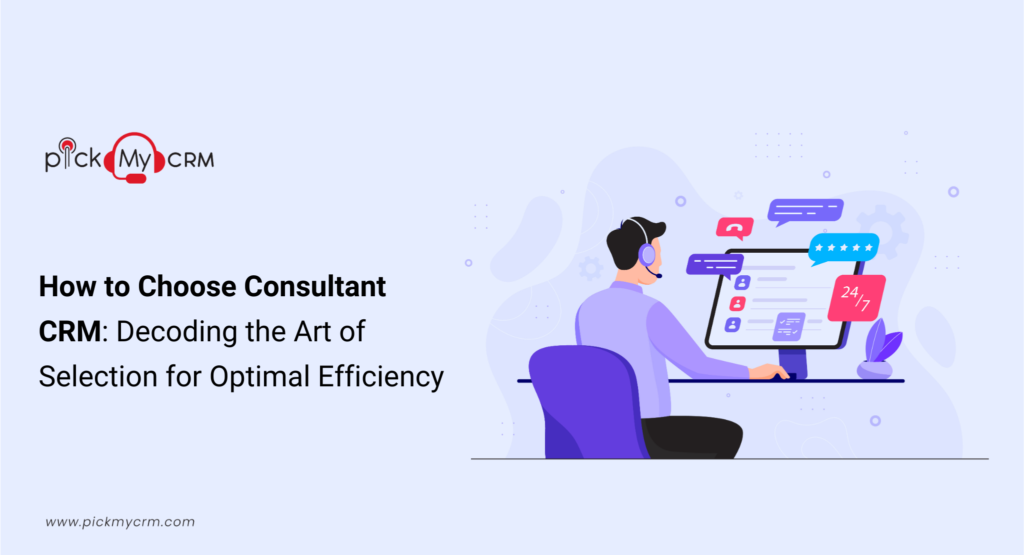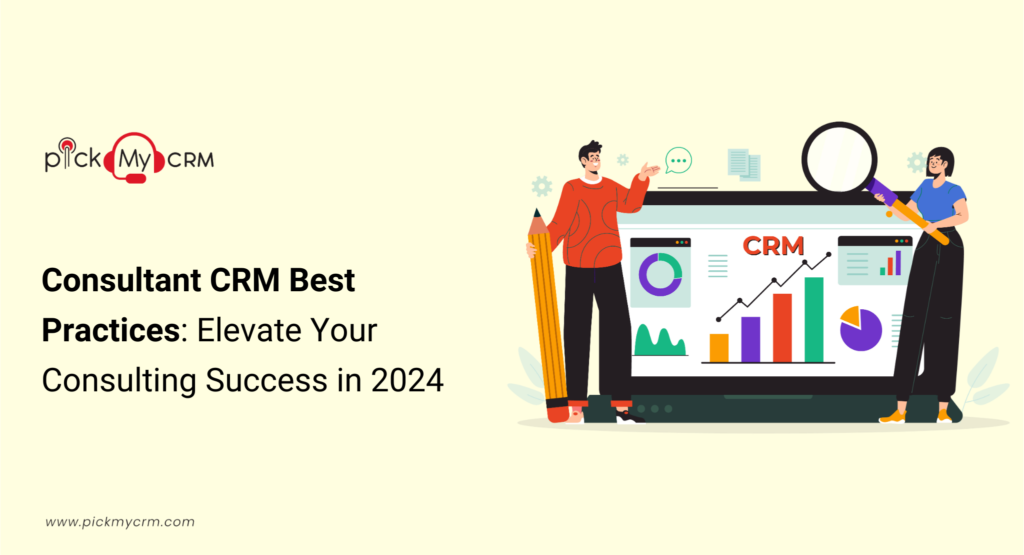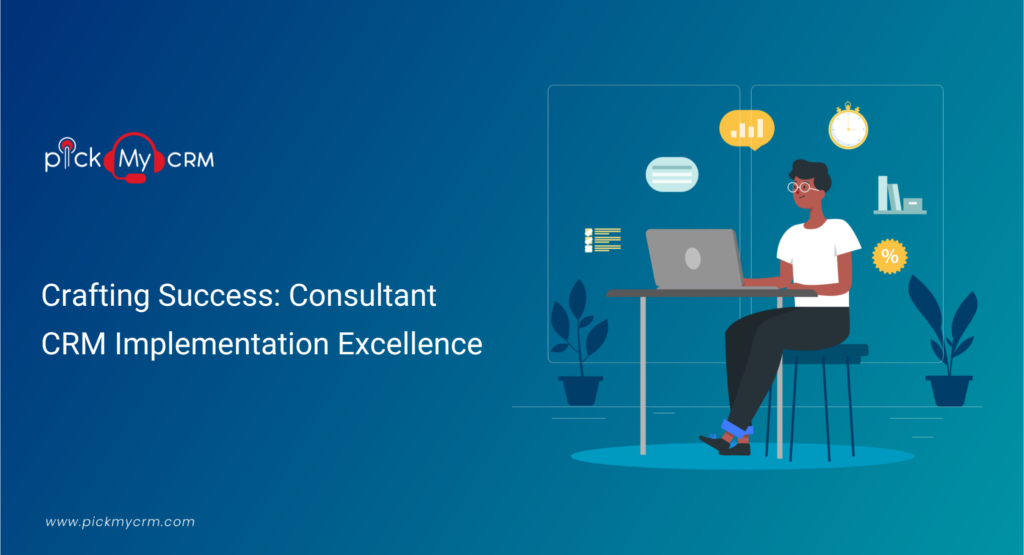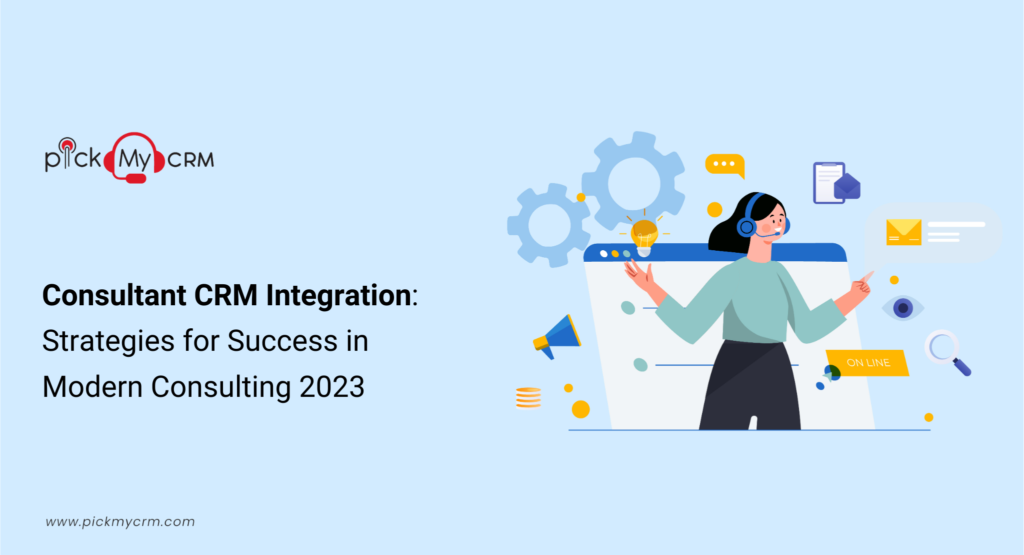How to Choose Consultant CRM: Decoding the Art of Selection for Optimal Efficiency

How to Choose a Consultant CRM: Here are 13 Steps
Choosing the right consultant CRM involves considering several criteria to ensure a successful partnership. Below are the essential factors to take into account,Defining Your CRM Requirements
Before immersing ourselves in the myriad of CRM options, it is essential to set a firm foundation by defining your specific requirements. This initial step will serve as the compass for your decision-making process.Analyzing Your Consulting Needs
- Client Relationship Management: To begin, delve deep into your current client relationship management practices. What are the primary challenges you face? Recognizing these pain points will serve as the bedrock for prioritizing CRM features.
- Consultant Collaboration: Assess the level of collaboration required among your consultants. Do you need a CRM that fosters seamless teamwork and facilitates information sharing?
Scalability and Growth
- Scalability: Contemplate your consultancy's growth potential. Will the selected CRM smoothly accommodate future expansion, eliminating the need for complex system migrations?
- Customization: Gauge the extent to which you need to customize your CRM. Some consultancies thrive on highly tailored solutions that align perfectly with their unique business processes.
Budget Considerations
While cost should not be the sole determining factor, it Unquestionably holds a critical role in choosing a Consultant CRM.Cost Analysis
- Total Cost of Ownership (TCO): Calculate the TCO meticulously, encompassing not only the initial purchase cost but also ongoing expenses like maintenance, support, and training.
- ROI Expectations: Clearly define your anticipated return on investment (ROI). How soon do you expect to witness tangible benefits from your CRM investment?
Experience and expertise
- When searching for consultants, prioritize those with a demonstrated history of successfully implementing CRM systems similar to the one you intend to adopt.
- Moreover, it's prudent to give Preference to consultants with firsthand industry experience, as they bring a more profound insight into the unique challenges and industry-specific best practices that matter in your sector.
Industry focus
- Choose a consultant who understands the intricacies of your industry and can provide insights and solutions tailored to your sector.
- Industry-focused consultants are more likely to understand your unique requirements and can better align the CRM system with your business needs.
Tailored solutions
- Assess the consultant's ability to understand your organization's Specific needs and translate them into a customized CRM solution.
- Look for consultants who can provide examples of how they have tailored CRM systems to meet the unique requirements of their clients.
Flexibility
- Ensure the consultant is flexible in their approach to implementation, allowing for adjustments based on your preferred processes and level of involvement.
- A flexible consultant will adapt their methodologies to align with your organization's goals and constraints, fostering a collaborative partnership.
References
- Request references from previous clients or case studies to gain insights into the consultant's performance, customer satisfaction, and successful project outcomes.
- Contact references to discuss their experience working with the consultant and assess if their feedback aligns with your expectations.
Quality
- Prioritize the quality of work over cost considerations when selecting a consultant. Look for consultants who consistently deliver high-quality results.
- Evaluate the consultant's expertise, attention to detail, and commitment to providing solutions that meet your organization's long-term goals.
Circumstances
- Consider practical factors such as time zone compatibility and language proficiency, especially if you anticipate regular communication and collaboration with the consultant.
- Establish a good rapport with the consultant, as a positive working relationship can contribute to a successful and productive partnership.
Certification and partnership
- If you have chosen a specific CRM platform, prefer consultants who are certified or recognized partners of that platform.
- Certified consultants possess specialized knowledge and expertise in the CRM system, ensuring a higher level of competency in implementation and support.
Customer-centric approach
- Look for consultants who prioritize understanding your organization's needs, concerns, and goals.
- A customer-centric consultant will actively listen, provide personalized recommendations, and focus on delivering solutions that align with your objectives.
Personalized demonstration
- Engage in a one-on-one product demonstration or consultation with the consultant to assess their understanding of your requirements and ability to address your specific needs.
- A personalized demonstration allows you to evaluate the consultant's expertise, communication skills, and the fit between their proposed solution and your organization's requirements.
Implementation Strategy
- Planning: Craft a comprehensive implementation plan encompassing data migration, training, and a well-structured timeline for adoption.
- User Training: Invest in rigorous user training to maximize CRM utilization and ensure your team harnesses the CRM's full potential.
Benefits of choosing the right Consultant CRM
Selecting the right Consultant CRM can yield a Multitude of Benefits for your consultancy, ensuring that you choose to harness its full potential.- Contact Management: Your chosen CRM must efficiently handle client and prospect contacts, enabling you to monitor interactions and preferences with finesse.
- Lead and Opportunity Management: A robust CRM should offer impeccable lead and opportunity tracking, supercharging your sales and consulting endeavors.
- Third-Party Integrations: Take a Close look at the CRM's compatibility with other tools you currently employ, such as email marketing platforms, project management software, or accounting systems.
- Reporting Tools: Opt for a CRM that Boasts comprehensive reporting and analytics capabilities. These are your compass in navigating the ever-changing seas of consultancy.
- Ease of Use: Remember, user adoption is the keystone for CRM success. Lean towards a system with an intuitive interface that demands minimal training.
- Mobile Compatibility: In a world dominated by mobile devices, ensure your chosen CRM is accessible on smartphones and tablets, empowering your consultants to remain productive On the go.
- Data Security: Prioritize data security features to safeguard sensitive client information and ensure compliance with industry regulations.
Narrowing Down Your CRM Choices: A Strategic Approach
With a clear understanding of your CRM requirements and the essential features to look for, it's time to embark on the crucial phase of narrowing down your choices. During this phase, you will navigate through a Multitude of CRM solutions, honing in on those that best match your consultancy's requirements and objectives.Vendor Research
Start by conducting comprehensive research on CRM vendors. Here's what to consider,- Vendor Reputation: Assess the standing of CRM providers by examining their reputation through reviews, recommendations, and industry expertise.
- Industry Expertise: Look for vendors with experience in your specific consultancy niche.
- Client Testimonials: Pay attention to client testimonials and success stories.
- Scalability: Ensure the CRM can scale with your consultancy's growth.
Demo and Trial
Requesting demos and trials of the shortlisted CRM solutions is a pivotal step in your decision-making process. Here's how to optimize this stage,- Hands-On Exploration: Test features, user-friendliness, and performance during demos.
- Real-World Testing: Simulate consultancy tasks to assess how the CRM handles them.
- Consultant Feedback: Involve your consultant team for their insights and feedback.
- Scalability Testing: Ensure the CRM can handle increased data and operational complexity.
- Integration Testing: Verify seamless integration with existing software tools.
Cost Evaluation
While you've likely considered budget constraints earlier, this is the time to delve deeper into the financial aspects of your CRM selection,- Hands-On Exploration: Test features, user-friendliness, and performance during demos.
- Real-World Testing: Simulate consultancy tasks to assess how the CRM handles them.
- Consultant Feedback: Involve your consultant team for their insights and feedback.
- Scalability Testing: Ensure the CRM can handle increased data and operational complexity.
- Integration Testing: Verify seamless integration with existing software tools.
Decision-Making Committee
Finally, choose to establish a decision-making committee within your consultancy for the Consultant CRM,- Stakeholder Alignment: Ensure alignment among committee members and top management.
- Objective Evaluation: Encourage objectivity in the evaluation process. Each committee member should assess the CRM options based on the consultancy's needs and goals.
- Scalability and Future Planning: Emphasize the importance of scalability and future planning. The committee should consider not only the immediate needs but also the long-term vision of the consultancy.
- ROI Assessment: Review the ROI assessment collectively. This collaborative approach will lead to a more well-rounded decision.



